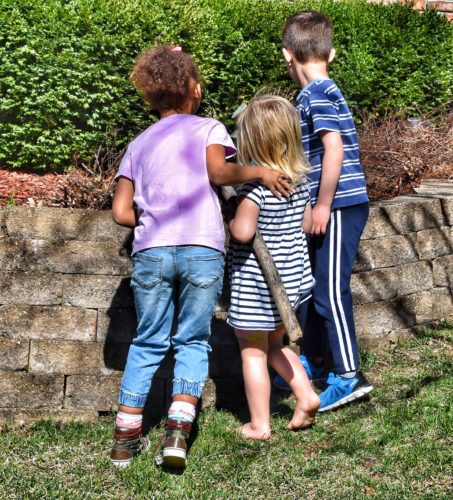Today, it seems that most people are reluctant to share their opinions on any subject matter involving race in fear of being unfairly labeled a racist or accused of “pulling the race card”.
So how do we talk about the very sensitive issue of race without worry of offending those that are directly affected by it?
The truth is that nothing about racism is ever cut and dry. Usually there are numerous underlying issues associated with it. If we could agree that an issue is about race, that would be a huge victory for most. Unfortunately, that is rarely the case. One person’s viewpoint may be completely different than another’s view on the subject matter. The manifestation of racism can be viewed in many ways—hence the difficulty.
So, how do we navigate through and begin the conversation about race? First, we must recognize when the issue is about race.
“It is about race if a person of color thinks it is about race. It is about race if it disproportionately or differently affects people of color. It is about race if it fits into a broader pattern of events that disproportionately or differently affect people of color.” -Ijeoma Oluo
I believe that our views are directly influenced by our environment, experiences, and daily interactions that we encounter in this world. Growing up, race was never an issue until my perfectly safe “bubble” that I was living in suddenly burst. I was unprepared for these self-taught life lessons that society was offering.
I hadn’t fully grasped the broad-ranging scope of racism in America until I was in my twenties. I have been called the N-word (a few times), followed in stores by sales associates, asked to provide receipts when exiting a store, given the stare-down in restaurants and/or ignored, pulled over by a police officer (just because), and more.
There is not enough word space on this platform to list all my experiences with racism.

Like myself, there are many people of color that have had and are still having similar experiences, and in some cases worse. Furthermore, subtlety does not disguise racism, despite what the “giver” may think. Believe me when I say, that most of us know when an issue is about race. We are drawing from past familiarities and that tell-tale feeling that we often get when confronted with such encounters.
Are we at a point where race is an off-limit subject that we can no longer discuss unless we are behind closed doors speaking to like-minded friends or family?
That very word—race—and everything it encompasses has created impassioned conversations among friends. I have witnessed arguments about race dissolve years of friendships among people in a matter of minutes. How do we begin to get past this hurdle if we are unable or unwilling to talk with others that aren’t like-minded or don’t look like us?
“Shallow understanding from people of goodwill is more frustrating than absolute misunderstanding from people of ill will. Lukewarm acceptance is much more bewildering than outright rejection.” -Dr. Martin Luther King
Superficial comprehension of racism will most likely result in a lax attitude, which can be even more dangerous than outright racism. In order to avoid such complacency, we must be willing to start a conversation to learn and understand our differences, respectfully. We must have and open mind and heart. We must strive to be intellectually informed about the issues.
We cannot allow ourselves to be bystanders in uncomfortable racist situations out of fear.
However, that does not mean putting yourself at risk in order to stand up against racism.
Racism will continue to plague our society until each one of us is willing to take a stand, fight the ignorance, and let those that persist know that America has had enough. This country will no longer stand for it.
Am I naïve in thinking this? Probably.

Nevertheless, as an optimist deeply rooted in faith, I continue to hope for the betterment of our future.
How do you bypass fear and have an open discussion about the issues surrounding race/racism?












Well said, couldn’t agree more! Great article.
Proud of this article! 💕